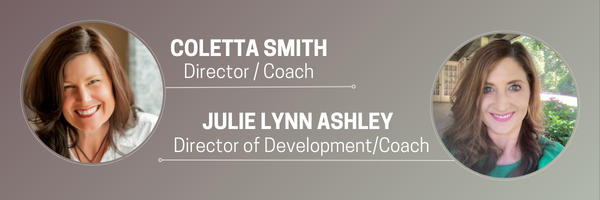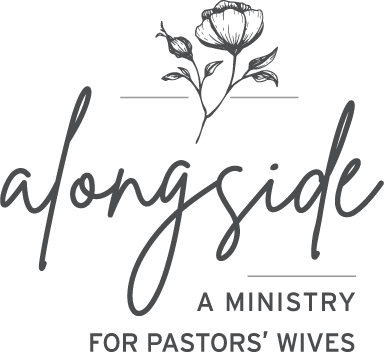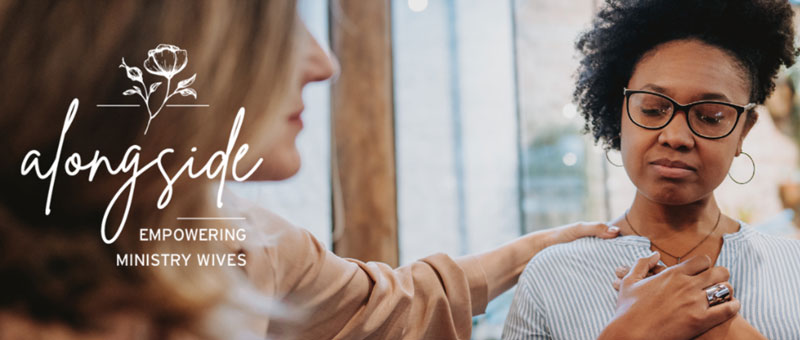Hidden Opportunities and Obstacles
“If only”…a breadcrumb trail of thinking that lured the nation of Israel into trouble (Numbers 14:2, 20:3). Israel, wistfully wishing for a better, greener place, mentally pushed aside countless miracles God had done to get them this far. As with the nation of Israel, wishing to be somewhere else erroneously “air brushes” that wished-for place to perfection in our minds. It focuses on what we don’t have instead of what we do. It fogs our rearview mirror, preventing us from experiencing gratitude for where we’ve been and clouds clear judgment for the present. It casts a shadow of doubt over any strategic planning for the future.
As pastor’s wives in either a small church setting or a big church setting, we can find ourselves daydreaming about greener pastures (“if only” we were in a bigger church…”if only” we were in a smaller church…).
Do any of these ring a bell?
- If only we were bigger…we’d have more staff and everything wouldn’t always fall to us.
- If only we were bigger…we’d have more resources and be able to do more Kingdom ministry.
- If only we were bigger…I would be able to see God’s hand at work around me.
- If only we were bigger…I wouldn’t have to pick up as many dropped balls.
You might not think this one happens, but it’s real.
- If only we were smaller…I would really be known.
- If only we were smaller…I would be able to find the space God has created for me.
- If only we were smaller…we would be able to have relationships with the families in our congregation.
- If only we were smaller…we would have close friends to do life with.
As with Israel, there are dangers and snares with distracted daydreaming to be somewhere “better”. We’ve discovered that some of these daydreams are actually myths. We’d love for you to listen in on this myth-buster conversation.
ABOUT FINDING FRIENDS

Julie Lynn: We all long for rich friendships. We long to be known. And sometimes we can mistakenly think that the secret to being known must lie in our surroundings. I am currently in a smaller church setting in a smaller town. There are times I’ve wondered if a larger church setting in a bigger city would provide more options for deeper friendships.
Coletta, I know you are in a mega-church setting in a larger town, so what do you think? Is finding friends easier or harder in a larger church?
Coletta: There are certainly more to choose from, that’s true. But there’s also a distance that is created by a larger “platform” that I never had to deal with in a smaller church. I loved being so close to all our families, walking through the baptizing, marrying and burying with them. We fight that distance but also have to live in its reality.
In both churches, there’s the assumption on the part of others that we’ve got friends, that we’ve been invited, and that we belong. All of those things are obviously not “givens”.
Something I never anticipated was the complexities that come with having friends that are on staff or staff spouses. In a smaller church, my closest friend was on staff and we figured out how to make it work, laboring shoulder to shoulder. But in a church with 100+ staff, there’s often a high degree of caution on their part and I’m held at arm’s length. There is also the added complexity of more agendas and darker motives to becoming friends with someone in a position of greater influence. However, an upside of friendships in a larger church is that there are many who “think” they want to be your friend. Most don’t understand what that entails, that its often more complicated than they thought it would be. But if we are willing to filter through and test the waters, there is gold to be found.
Whether in a large or small church, I think the key to finding friendships is asking God to provide and then stepping out expectantly, over and over again, to see where He brings her into my life. I say “her” because it’s often just one, trustworthy person that God brings. We’ll talk more about finding friendships as a Pastor’s wife in a future article.
So what are the upsides of finding friends in a smaller church, Julie Lynn? And what makes it hard?
Julie Lynn: I think an “upside” to finding friends in a smaller church is that your choices can potentially narrow quickly. Friendships might develop more quickly because of this. Two of the first friends I made here are still my friends almost ten years later (one is on staff and one is a congregation member). Another “upside” is that in a smaller church/smaller town, getting together in person feels easy (one friend is five minutes away… with zero traffic.) In our scenario, one of the downsides to finding friends in a smaller church/small town is you are up against suspicion that you won’t stay long (some assume you will eventually move to a larger city with more opportunities). We dealt with this suspicion from both staff AND congregation for years. Even after seven years, I still had people directly asking if we were really going to stay. You can see how this suspicion (some spoken and some unspoken) can be a big barrier to being invited in.
ABOUT FINDING LARGER COMMUNITY
Coletta: We spent 23 years in smaller churches and I was one of two or the only pastor’s wife. I always thought that life in a big church would mean an automatic community with the other pastors’ wives and women on staff. In a smaller church, it’s “all hands on deck” which fosters a comradery forged in the crucible of battle. When there are more staff, there isn’t the same need for spouses to be engaged at the same level. So that comradery in the trenches isn’t automatic.
I’ve loved how God has met me and provided a few friends that are in the trenches of ministry with me. But sometimes I long for the life group that was so easy at our smaller churches. In a church our size, it’s super hard for us to walk into a Life Group and not have our presence change the dynamic. So we wrestle with accepting that maybe we can’t engage in a Life Group in the same way that our congregants do. Or do we press
in and find a way to make it happen?
Have you found that finding a Life Group (or Community Group) has been difficult for you and Doug?
Julie Lynn: We had to create it ourselves by God showing us a point of need. 8 years ago we figured out that there were parents dropping their kids off at youth group on Sunday nights, going home for 90 minutes then coming back to pick kids up. God popped the idea in our heads, “What if you used those 90 minutes to hang out with these parents?” So that’s what we did.
8 years later we are still meeting and wrestling with hard stuff and what it means to walk with Jesus.
8 years later we have had some leave, welcomed new people in and are laughing with each other about the complexities of raising kids.
There were Sunday nights we wondered if anyone would show up. There were quiet text threads and frustration….weeks we got ridiculously off topic…but I’m glad we didn’t give up. There are now newer believers in this group who aren’t intimidated to talk with Doug & I in the hallways or text us because they’ve seen and prayed for areas we struggle. It’s broken down some “pedestals” and I LOVE THAT.
Coletta: That seems to be a theme that I’ve seen true for most pastoral couples navigating Life Groups. They had to create it. Maybe it means handpicking those that God leads you to. Or maybe it’s finding a circumstance that God has already used to bring people together and seizing that. That seems to be what you and Doug did.
I guess the other principle here is that what we preach to our people is true for us as well: We were created for community. It may be more complicated to find and to cultivate, but we are not exempt from needing those close relationships, of doing life together and sharing the burdens that come with it. So whether God provides that for you within your church body or outside it with some others that understand this calling and can support you and bear it with you, He has that for you.
So let’s be courageous in prayer, in watching expectantly for His hand to move and in walking forward, trusting that He is already at work to provide the community of support He knows we need. Let’s lay down the daydreams of what we think it will look like and watch for Him to provide in perhaps the most unexpected ways.



